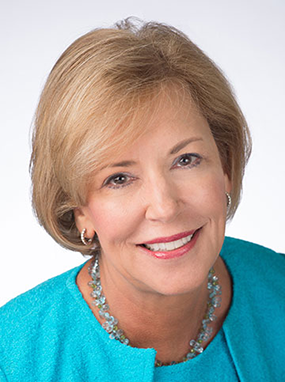From The Director
How data can help us answer the $2.5 billion challenge
By Stephanie Hirsh
August 2012
Vol. 33 No. 4
It is upsetting to me any time I hear a policymaker talk about what a waste of money professional development is. For example, Arne Duncan cites the $2.5 billion a year in federal funds for professional development and mentions that when teachers hear that figure, they either laugh or cry (U.S. Department of Education, 2012). While Duncan’s stance has recently shifted to emphasize that professional development can be better and that we need more of it, staff in the Department of Education reference conversations with educators who complain that much of their professional development has failed to address the real challenges they face in schools. Policymakers also point to research studies that indicate particular professional development didn’t achieve its intended outcomes and thus declare it a failure.
While we know intuitively that professional learning is important, we know it can work, and we know we need more, all of our professional learning efforts are not consistently effective. Getting the Data standard right can help us understand when and how we are successful and where we need to improve. Let’s begin with the end in mind, clarify the outcomes we expect, and, most importantly, outline how we will measure whether we achieved our goals.
This takes work at many levels. For each professional learning effort a teacher is involved in, the source of classroom data to document its impact may be different. For example, the work a teacher does with a coach to strengthen her higher-order questioning skills may be documented through different strategies than what a schoolwide team does to measure its learning to support a new literacy curriculum.
While we know so much about meaningful data collection and use, we still have a lot of work to do in this field, and I’d start with these action steps:
- Let’s build consensus on what we mean by generally acceptable evidence of impact of professional learning.
- Next, let’s identify or build tools and resources that ensure the data collection process is a seamless part of the teacher, coach, and principal workday.
- As part of this work, we must ensure that all data collected advances educator and student performance.
- Finally, we need to ensure the data collection process is viewed as helpful rather than a compliance activity.
There are many tools and processes already developed and in use that take these steps. However, these occur in isolated situations. If all educators don’t have access to this data and the knowledge to use it well, how can they demand the professional learning that drives the results we all want for students?
Once our systematic use of data helps us communicate with compelling information about the value of professional learning, I know we’ll hear a different response from our policymakers. I can just hear Secretary Duncan saying, “We are fortunate that we have billions of dollars allocated by Congress annually to support the continuous improvement of our educators. We must ensure that we use those funds in a way that supports the day-to-day problems of our educators. Professional learning is the improvement strategy that builds both individual and collective capacity for results, and we must ensure we get everything possible from it.”
References
U.S. Department of Education. (2012, February 15). Teachers get R-E-S-P-E-C-T: Remarks of Secretary Arne Duncan at a teacher town hall. Available at www.ed.gov/news/speeches/teachers-get-r-e-s-p-e-c-t. ν

Stephanie Hirsh retired in June 2019 after 31 years with Learning Forward, an international association of more than 13,000 educators committed to increasing student achievement through effective professional learning. Hirsh led the organization as its executive director for the last 13 years where she presented, published, and consulted on Learning Forward’s behalf across North America.
Recent Issues
EVALUATING PROFESSIONAL LEARNING
February 2024
How do you know your professional learning is working? This issue digs...
TAKING THE NEXT STEP
December 2023
Professional learning can open up new roles and challenges and help...
REACHING ALL LEARNERS
October 2023
Both special education and general education teachers need support to help...
THE TIME DILEMMA
August 2023
Prioritizing professional learning time is an investment in educators and...








